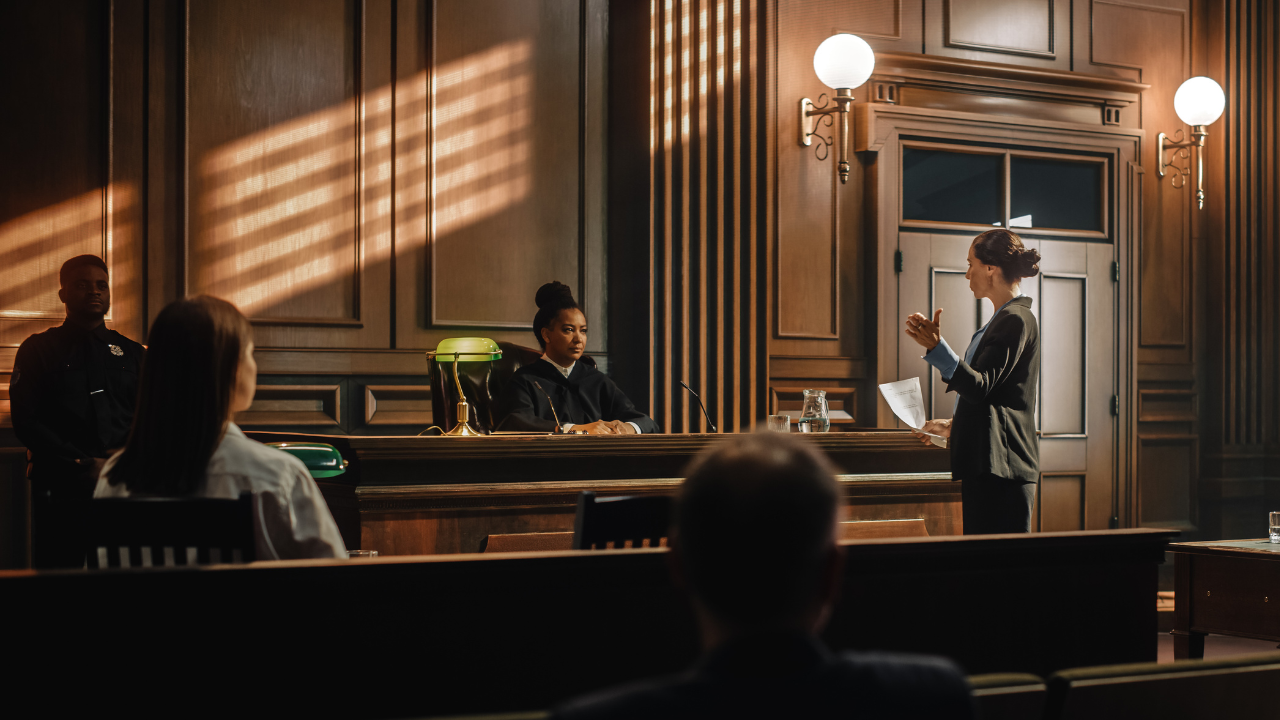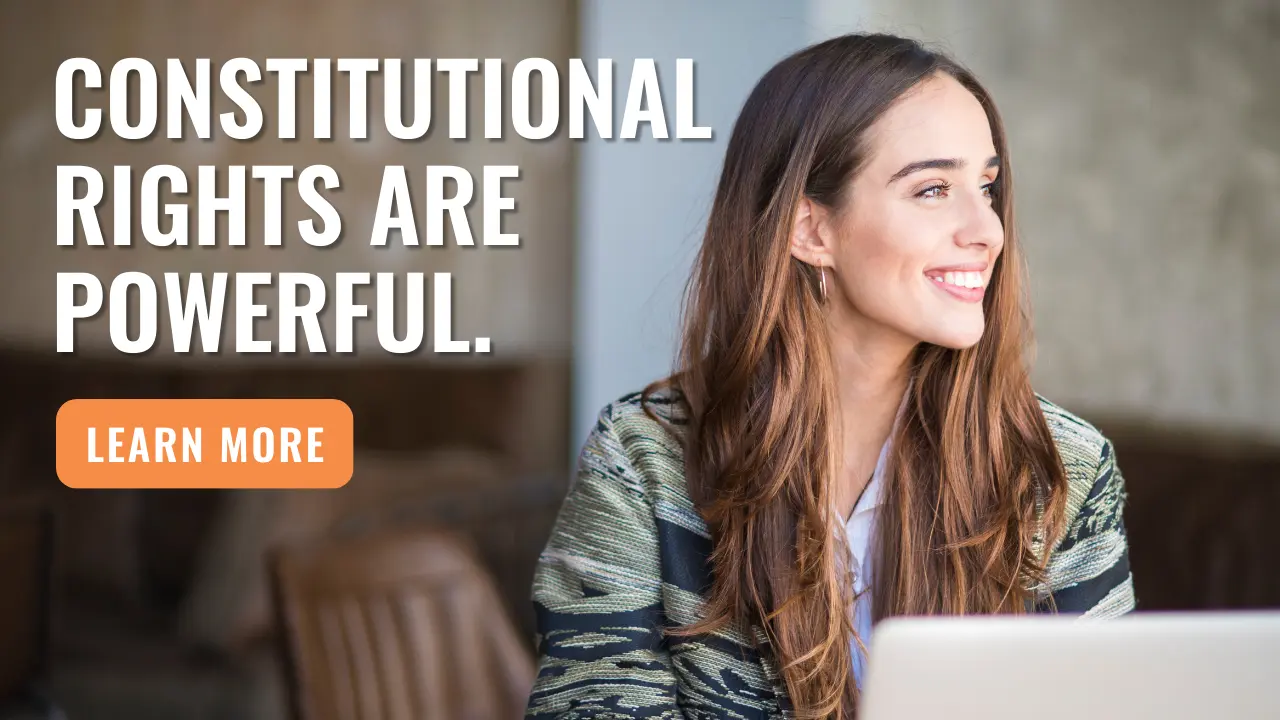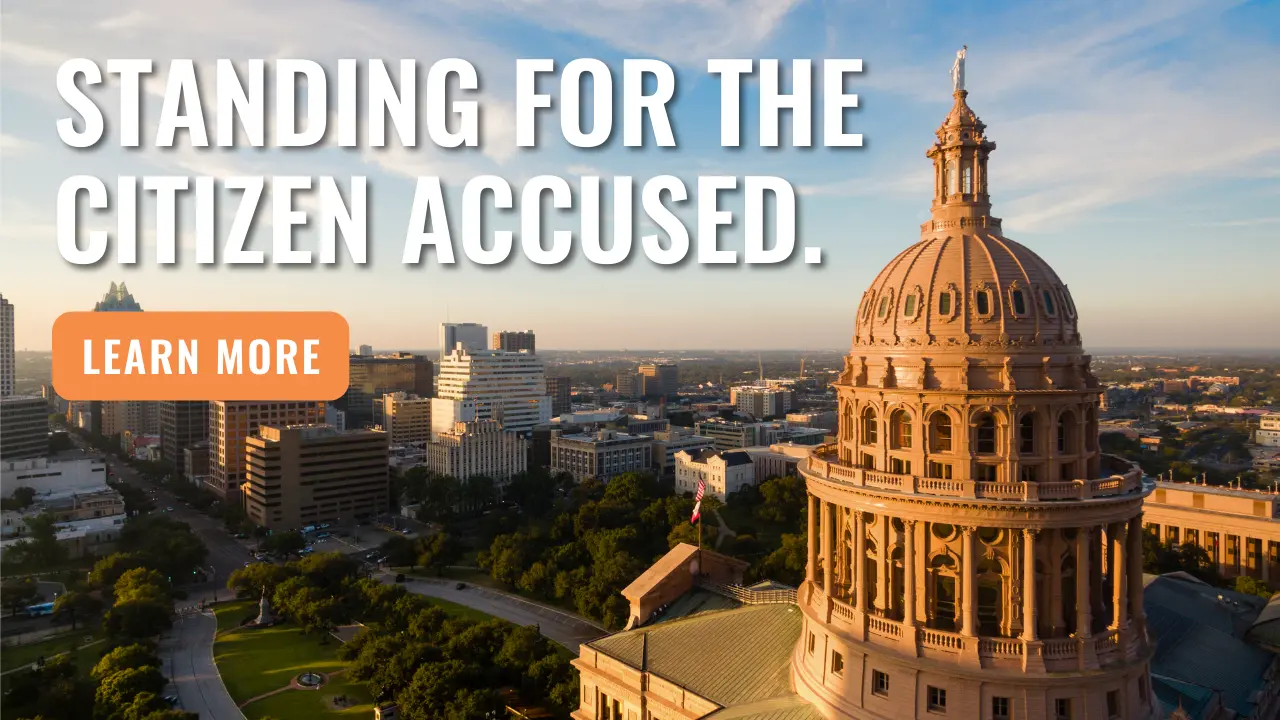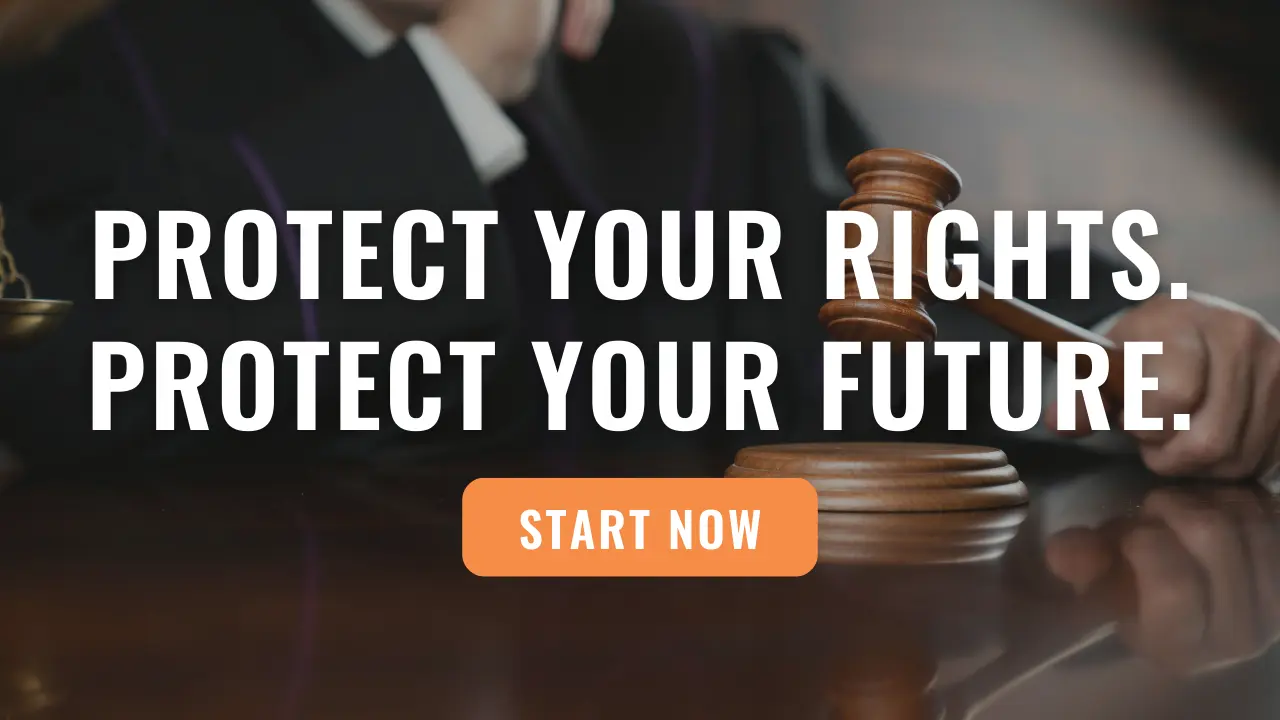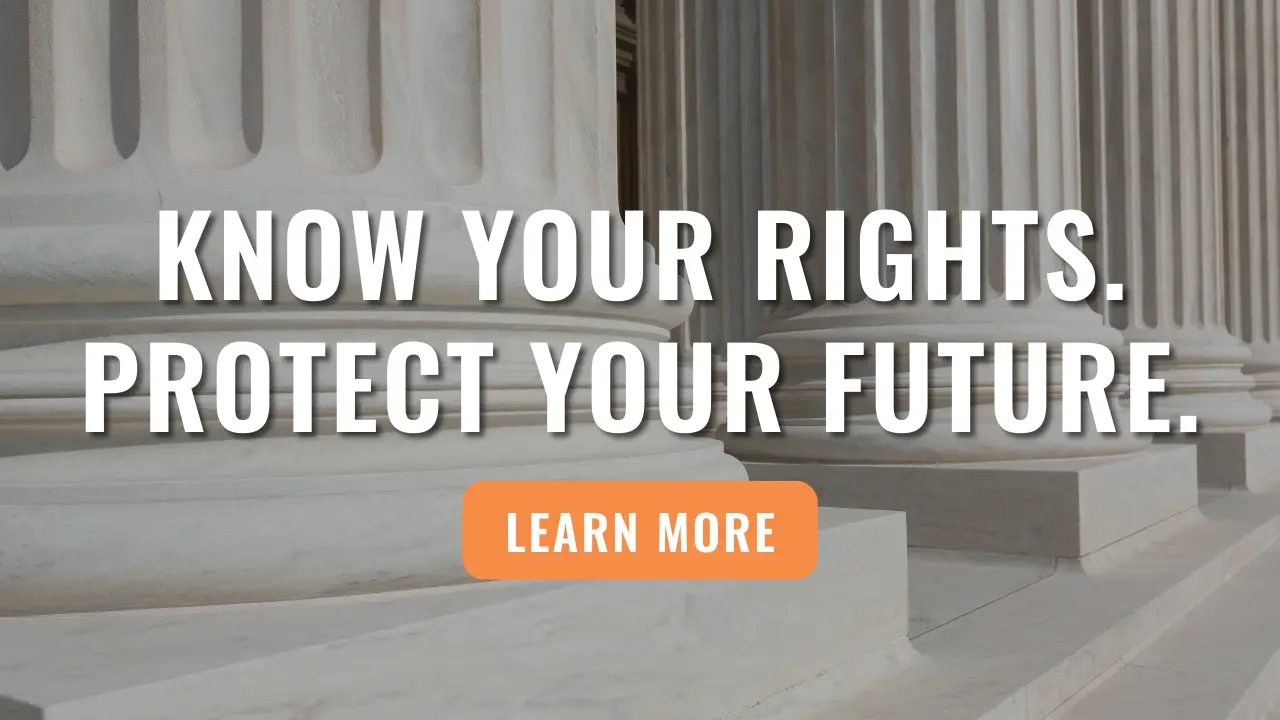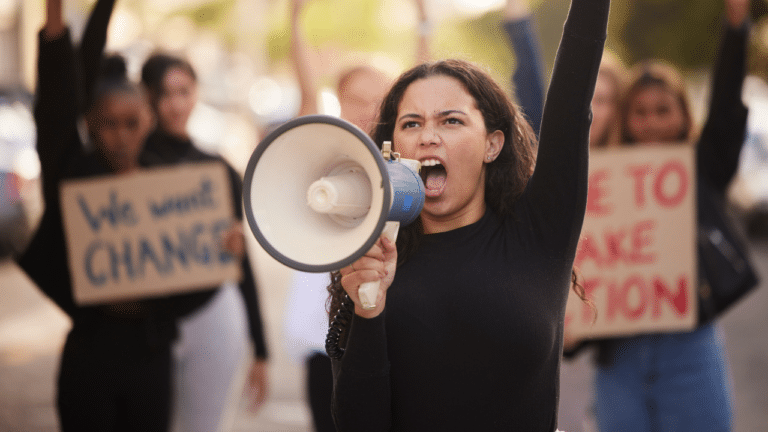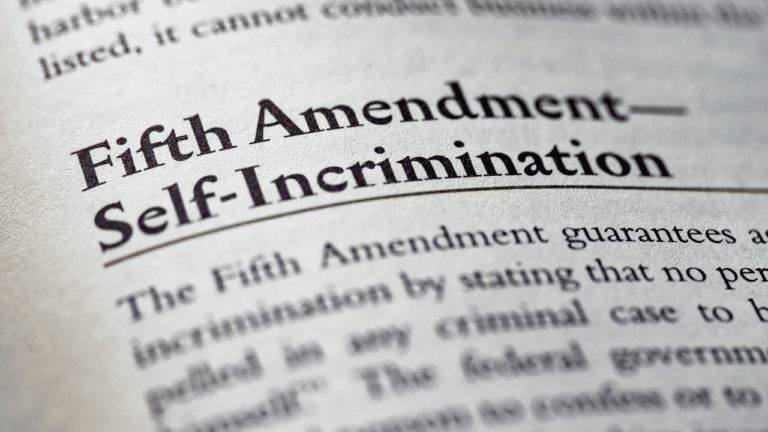The Sixth Amendment to the United States Constitution provides seven specific procedural protections to those accused of committing a crime: (1) the right to a speedy trial; (2) the right to a public trial; (3) the right to a trial by an impartial jury drawn in a prescribed manner; (4) the right to notice; (5) the right confront witnesses (“the Confrontation Clause”); (6) the right to compulsory process; and (7) the right to effective assistance of counsel. All protections encompassed by the Sixth Amendment are applicable to the States through the Fourteenth Amendment Due Process Clause.
WHAT IS THE TEXT OF THE SIXTH AMENDMENT TO THE UNITED STATES CONSTITUTION?
U.S. Const. Amend. VI. JURY TRIALS FOR CRIMES, AND PROCEDURAL RIGHTS.
In all criminal prosecutions, the accused shall enjoy the right to a speedy and public trial, by an impartial jury of the State and district wherein the crime shall have been committed, which district shall have been previously ascertained by law, and to be informed of the nature and cause of the accusation; to be confronted with the witnesses against him; to have compulsory process for obtaining witnesses in his favor, and to have the Assistance of Counsel for his defence.
WHAT IS THE HISTORICAL BACKGROUND OF THE SIXTH AMENDMENT IN THE BILL OF RIGHTS?
The Bill of Rights in the Constitution of the United States guarantees fundamental freedoms often restrained by despotic, oppressive governments. In an atmosphere of great government mistrust, Anti-Federalists feared the government would be controlled by the aristocracy, and would rule through corruption and force.
The Framers of the U.S. Constitution, including John Adams, Thomas Jefferson, and James Madison, recognized the importance of protecting individual liberties from government intrusion. Their intention, made clear by the Preamble, was to “form a more perfect Union, establish Justice, insure domestic Tranquility, provide for the common defense, and promote the general Welfare.”
To assuage the Democratic-Republicans and Anti-Federalists, framer James Madison drafted the first ten constitutional amendments, known as the Bill of Rights, based on the desire to avoid another tyrannical government they had fought so hard against. The Federalist party secured the ratification of the U.S. Constitution by promising the addition of amendments codifying fundamental liberties outlined in the Bill of Rights.
The Bill of Rights not only pronounced broad principles limiting the federal government’s powers, such as due process of law, but also set forth distinct safeguards for individual liberties. Such “choicest privileges of the people” of the United States include the first amendment freedom of speech and the press, the second amendment right to keep and bear arms, and the fourth amendment right to be free from unreasonable searches and seizures.
The first ten amendments were proposed to several state legislatures by the First Congress on September 25, 1789. New Jersey was the first State to ratify the Bill of Rights on November 20, 1789, followed by Maryland, North Carolina, South Carolina, New Hampshire, Delaware, Pennsylvania, New York, and Rhode Island in 1790. Vermont and Virginia ratified the Bill of Rights in 1791, resulting in its adoption. The Legislatures of Connecticut, Georgia, and Massachusetts held out on ratification until 1939.
WHAT IS THE SIXTH AMENDMENT RIGHT TO A SPEEDY TRIAL?
The Sixth Amendment guarantees all criminal defendants the right to a speedy trial. The speedy trial right was designed to protect the interests of defendants, such as: (1) preventing oppressive pretrial incarceration; (2) minimizing anxiety and concern of the accused; and (3) limiting the possibility that the defense will be impaired. The inability of a defendant to adequately prepare one’s case skews the fairness of the entire system.
The speedy trial right is different from any other constitutional right. Its uniqueness lies in its vague, amorphous nature, and the severe remedy for the violation is a dismissal of the indictment with prejudice.
What is Barker v. Wingo?
The U.S. Supreme Court adopted a four-part balancing test in Barker v. Wingo to determine whether a defendant’s Sixth Amendment right to a speedy trial has been violated: (1) the length of the delay; (2) the reasons for the delay; (3) whether the defendant asserted the right to a speedy trial; and (4) whether the defendant suffered prejudice as a result of the delay.
In Barker, the defendant and his co-defendant were arrested for beating an elderly couple to death in their home. The case was stronger against the co-defendant, so he was tried first. Five and a half years after the defendant was arrested, he was finally tried and convicted. In balancing the four factors, the Court determined the defendant’s speedy trial right had not been violated. Although the length of delay was extraordinary, the defendant never asserted his right (his counsel conceded he “probably did not want to be tried. I don’t think any man wants to be tried”). The defendant was out on bond for most of that time, and suffered no prejudice as a result of the delay. Conviction affirmed.
Under the Barker standard, courts first look to the length of the delay before considering the remaining factors in a speedy trial violation analysis. A lengthy delay will trigger the rest of the analysis if the delay is “presumptively prejudicial,” depending on the “peculiar circumstances of each case.”
Is a speedy trial good or bad?
The speedy trial right is unlike any other constitutional safeguard because the remedy for a violation of the right is a dismissal, thus benefiting the defendant. Justice Powell wrote in Barker: “The amorphous quality of the right also leads to the unsatisfactorily severe remedy of dismissal of the indictment when the right has been deprived. This is indeed a serious consequence because it means that a defendant who may be guilty of a serious crime will go free, without having been tried.” The speedy trial right has also been described as “slippery,” requiring a flexible approach rather than a rigid, strict time limit.
A criminal defendant’s charges will ultimately be dismissed if a judge determines the constitutional right to a speedy trial has been violated. That is why courts look to other factors besides the length of the delay, such as whether the defendant ever asserted his right to a speedy trial, and whether he actually asked for a trial rather than a dismissal. The defendant also bears the burden of proving he has been prejudiced beyond generalized anxiety.
In Doggett v. United States, the defendant, unbeknownst to him, was indicted on federal drug charges in 1980, but traveled to Panama before the DEA arrested him. The DEA knew he was imprisoned for a short time in Panama, but never followed up on his status after requesting his return. He moved back in 1982, lived and maintained employment under his own name, got married, and got a college degree. During a routine credit check, the Marshal’s Service located him, and arrested him in 1988. The U.S. Supreme Court held this 8 ½ year delay was presumptively prejudicial, and law enforcement’s negligence caused the delay. The Court held the defendant’s right to a speedy trial was violated.
WHAT IS THE 6TH AMENDMENT RIGHT TO A PUBLIC TRIAL?
The Sixth Amendment provides the right to a public trial, but it is not an unlimited guarantee. The accused does have a right to insist on a public trial, but there are exceptions to this general rule. The right to an open trial may give way in certain cases to other rights or interests, such as the defendant’s right to a fair trial, or the government’s interest in inhibiting disclosure of sensitive information.
A corollary issue raised by the public trial guarantee is whether a trial can be held in open proceedings if a defendant waives the right to a public trial. In such a case, the trial may nevertheless be held open over the defendant’s objection pursuant to the First Amendment freedom of the press, even if the media does not request access. The issue implicates not only a defendant’s Sixth Amendment rights, but also the First Amendment rights of the press and the public. Given the competing textual mandates, the Court properly held that a resolution of the issue should be predicated on a balancing of the two constitutional provisions.
What does having a public trial mean?
The right to a public trial means trial courts must take every reasonable measure to accommodate public attendance at criminal trials. The public has a right to be present whether or not any party has asserted the right or requested access. The purposes of this right include allowing the public to see that the defendant is fairly dealt with and not unjustly condemned by any government organization, encouraging the judge and prosecutor to carry out their duties responsibly, encouraging witnesses to come forward, and discouraging perjury.
In Waller v. Georgia, the defendant and 13 others were indicted for violating Georgia’s Racketeer Influenced and Corrupt Organizations (RICO) Act. After picking a jury, the trial court held a suppression hearing regarding the wiretaps and recordings. The State requested the hearing to be closed because the recordings were of conversations between other people named in the indictments. The trial court closed the suppression hearing, but the U.S. Supreme Court held the closure violated the Sixth Amendment right to a public trial. Here, the closure was unjustified—the State did not specify whose privacy interests would be violated by the open hearing, and the trial court’s findings were too broad.
In Presley v. Georgia, the defendant was convicted of cocaine trafficking. Before selecting a jury in the defendant’s trial, the trial court instructed the defendant’s family member who was observing to leave the courtroom. The defendant objected to the exclusion of the public from the courtroom, but the trial court said there was not enough space. The U.S. Supreme Court held this was reversible error requiring a new trial because the exclusion, even if only during jury selection, violated the Sixth Amendment right to a public trial. There was no competing interest of such high import warranting the exclusion, and jury selection is a part of trial required to be open to the public.
What are exceptions to the right to a public trial?
The right to an open trial may give way in certain cases to other rights or interests, which must be balanced with special care prior to closing proceedings. The party seeking to close the hearing must advance an overriding interest that is likely to be prejudiced, the closure must be no broader than necessary to protect that interest, the trial court must consider reasonable alternatives to closing the proceeding, and it must make findings adequate to support the closure.
For example, circumstances where a judge could conclude that threats of improper communications with jurors or safety concerns are concrete enough to warrant closure. But the particular interest and threat to that interest must be articulated, along with findings specific enough that a reviewing court can determine whether the closure order was properly entered. The First Amendment right of access cannot be overcome by the conclusory assertion that publicity might deprive the defendant of the right to a fair trial. Press-Enterprise Co. v. Superior Court of California, 478 U.S. 1 (1986).
WHAT IS THE SIXTH AMENDMENT RIGHT TO TRIAL BY JURY?
The Sixth Amendment guarantees an accused the right to a trial by an impartial jury of the State and district where the crime was committed.
The historical foundation for the recognition of this principle extends down centuries into the common law. To guard against a spirit of oppression and tyranny on the part of rulers, and as the great bulwark of our civil and political liberties, the right to trial by an impartial jury requires that “the truth of every accusation, whether preferred in the shape of indictment, information, or appeal, should afterwards be confirmed by the unanimous suffrage of twelve of [the defendant’s] equals and neighbours.” 4 W. Blackstone, Commentaries on the Laws of England 343 (1769).
Is there always a right to a jury trial?
Although the Sixth Amendment protects the right to a jury trial in “all criminal prosecutions,” the United States Supreme Court has ruled the right to a jury trial extends only to serious offenses, not petty ones. Whether a crime is serious depends on the severity of the authorized punishment. An offense carrying a maximum prison term of six months or less is presumed petty, unless Congress or the state legislature has authorized additional statutory penalties so severe as to indicate that Congress or state legislatures considered particular offenses serious.
In Lewis v. United States, the defendant was charged with two counts of obstructing the mail, which carried a maximum prison sentence of six months each. He was tried on both counts together by a judge (a “bench trial”), and convicted. He argued on appeal he had a right to be tried by a jury because although each was a petty offense, he was tried for both together. The U.S. Supreme Court held that a defendant who is prosecuted in a single proceeding for multiple petty offenses does not have a Sixth Amendment right to a jury trial where the aggregate prison term exceeds six months. The aggregate potential prison term does not change Congress’s judgment of the particular offense’s gravity.
What does trial by jury mean?
This right entitles a criminal defendant to a jury determination that he is guilty of every element of the crime with which he is charged beyond a reasonable doubt. The jurors must be chosen from the district within the state in which the crime was committed.
In Apprendi v. New Jersey, the defendant shot at a black family’s home, and admitted to targeting the victims because of their race. He pled guilty to possessing a firearm for an unlawful purpose. After his plea, the prosecution filed a motion to have the judge find by a preponderance of the evidence that the defendant committed a hate crime, which enhanced the sentence. The judge granted the motion and sentenced the defendant based on the enhancement. The U.S. Supreme Court ruled the Sixth Amendment right to an impartial jury and unanimity requires any fact that increases the penalty range, other than prior convictions, to be proved beyond a reasonable doubt.
What is an impartial jury?
The fundamental right to jury trial includes the requirement that a petit jury be selected from a fair cross section of the community.
In Duren v. Missouri, a Missouri statute automatically exempted women from jury duty during the jury selection process if they requested such exemption. The defendant was convicted, and argued on appeal that his right to trial by a jury chosen from a fair cross section of his community was violated. The U.S. Supreme Court agreed—54% of the adults in the county of conviction were women, and for the month in which the defendant’s jury was chosen, the weekly veneers averaged 15.5% women. The defendant’s all-male jury was selected from a panel of 53, only 5 of whom were women. This underrepresentation violates the Sixth Amendment.
In Batson v. Kentucky, the defendant, a black man, was convicted by an all-white jury. During voir dire, the prosecutor used all his peremptory challenges to strike the four black persons on the venire panel. The defendant argued a violation of the Fourteenth Amendment Equal Protection Clause and the Sixth Amendment. The U.S. Supreme Court agreed, reiterating that a defendant is denied equal protection when potential jurors are excluded based on race. When a defendant establishes a prima facie case of purposeful discrimination, the prosecution must rebut it with a race-neutral reason for the exclusion.
What is jury unanimity?
The Sixth Amendment right to an impartial jury necessarily requires a jury to reach a unanimous verdict to convict a defendant.
In Ramos v. Louisiana, the defendant was convicted of a serious crime in Louisiana based on a 10-to-2 verdict, which was only allowed in that state and Oregon. The rest of the states and federal courts required all 12 jurors to agree the defendant committed the crime beyond a reasonable doubt. The U.S. Supreme Court held the Sixth Amendment requires all 12 jurors to unanimously agree on the guilty verdict in trials for serious offenses, and any state law permitting less is unconstitutional.
What jury size is required?
The number of jurors deciding whether an accused committed a crime beyond a reasonable doubt may vary. It should be large enough to promote group deliberation, be free from outside attempted intimidation, and to provide a fair possibility for obtaining a representative cross-section of the community. So long as the unanimity requirement is retained, the petit jury must be composed of at least six jurors.
WHAT IS THE CONFRONTATION CLAUSE OF THE SIXTH AMENDMENT?
The Sixth Amendment provides that “[i]n all criminal prosecutions the accused shall enjoy the right . . . to be confronted with the witnesses against him.” The Confrontation Clause involves four procedural safeguards: (1) in person testimony by witnesses; (2) testimony given under oath; (3) testimony that is subject to cross-examination; and (4) testimony where the jury can observe the witnesses’ demeanor. Maryland v. Craig, 497 U.S. 836 (1990).
The Confrontation Clause protects against the dangers in admitting out-of-court statements. Confrontation: (1) insures the witnesses will give his statements under oath, thus impressing him with the seriousness of the matter and guarding against the lie by the possibility of a penalty for perjury; (2) forces the witness to submit to cross-examination; and (3) permits the jury deciding the defendant’s fate to observe the demeanor of the witness in making his statement, thus aiding the jury in assessing his credibility.
What is hearsay?
Hearsay is a statement made outside courtroom proceedings offered during trial to prove the truth of the matter asserted in the statement. Fed. R. Evid. 801(c). Hearsay is generally not admissible during trial unless it falls within one of the enumerated exceptions. For example, spontaneous declarations and statements made in the course of receiving medical care are such out-of-court declarations made in contexts that provide substantial guarantees of their reliability and trustworthiness. White v. Illinois, 502 U.S. 346 (1992).
The Confrontation Clause prohibits the use of “testimonial” out-of-court statements—even if they fall within a hearsay exception—without giving the defendant the opportunity of cross examination. This is because cross-examination has been called the “greatest legal engine ever invented for the discovery of truth. California v. Green, 399 U.S. 149 (1970).
In Crawford v. Washington, the defendant stood trial for stabbing a man whom he claimed tried to rape his wife. His wife did not testify, but the State played her recorded interview with police. The defendant was convicted, but the U.S. Supreme Court reversed his conviction. The wife’s recorded statement was hearsay, and testimonial—i.e, “material such as affidavits, custodial examinations, prior testimony that the defendant was unable to cross-examine, or similar pretrial statements that declarants would reasonably expect to be used prosecutorially.” The defendant was deprived of the opportunity to cross-examine his wife at trial, which violated the Confrontation Clause.
What are examples of hearsay?
When a witness attempts to restate something spoken outside the court proceedings, the utterance will generally draw a hearsay objection. Hearsay is not permitted because of the lack of reliability and trustworthiness of such statements. However, certain exceptions permit the use of out-of-court statements based on specific circumstances contributing to a statement’s reliability.
In White v. Illinois, the defendant was tried and convicted of sexually assaulting a four-year-old child. The child did not testify due to extreme emotional distress. The child’s babysitter, who spoke to the victim immediately after the assault, testified as to what the child said about the assault. The defendant objected to hearsay, but the trial court permitted the testimony based on the “spontaneous declaration” exception. The U.S. Supreme Court affirmed the defendant’s conviction, ruling the statements were made in a moment of excitement, were not testimonial, and thus admissible out-of-court statements without violating the Confrontation Clause.
WHAT IS THE SIXTH AMENDMENT RIGHT TO COUNSEL?
The Sixth Amendment to the Constitution guarantees an accused who faces incarceration effective assistance of counsel at all critical stages of the criminal process. The right to counsel is one of the fundamental rights obligatory at the local, state, and federal levels.
What is effective assistance of counsel?
Ineffective counsel is not functioning as the “counsel” guaranteed by the Sixth Amendment. Thus, the denial of effective assistance of counsel is a violation of the Sixth Amendment. Counsel is ineffective if the attorney’s performance was so deficient that it affected the reliability of the verdict.
In Strickland v. Washington, the U.S. Supreme Court formulated the two-pronged standard for ineffective assistance of counsel claims: (1) the defendant must show that counsel’s performance was deficient as evaluated by prevailing professional norms; and (2) the defendant must demonstrate a reasonable probability that, but for counsel’s unprofessional errors, the result of the proceeding would have been different. When evaluating counsel’s performance, courts indulge a strong presumption of counsel’s reasonableness, and apply a heavy measure of deference to counsel’s judgments.
In Strickland, the defendant pled to capital murder. At the sentencing hearing, his counsel did not present evidence of his character and emotional state. He also did not offer the defendant’s presentence report. The trial court sentenced the defendant to death, and he claimed ineffective assistance of counsel. The U.S. Supreme Court held the attorney was effective, and his decisions were reasonably strategic—presenting character evidence would have permitted the State to present its own evidence of the defendant’s character, and offering the presentence report showing his criminal history would have contradicted his assertion to the judge that he did not have significant criminal history.
What are examples of ineffective assistance of counsel?
When circumstances exist that are so likely to prejudice the accused that the cost of litigating their effect in a particular case is unjustified, a Sixth Amendment violation may be found without inquiring into counsel’s actual performance or requiring the defendant to show the effect it had on the trial. For example, when counsel is either totally absent, or prevented from assisting the accused during a critical stage of the proceeding, prejudice is presumed, and it constitutes a complete denial of counsel.
In Kimmelman v. Morrison, the victim called police to report the defendant raped her. Police went to the defendant’s apartment where another tenant let them in without the defendant there. The officer seized the bedsheets, and the defendant was ultimately convicted. His attorney did not timely file a motion to suppress the bedsheet due to a Fourth Amendment violation, so he argued his counsel was ineffective. The U.S. Supreme Court held counsel was ineffective—he did not know about the seizure until the officer testified because he failed to conduct pretrial discovery. Such conduct is not reasonable, strategic, or in accordance with prevailing professional norms.
In Missouri v. Frye, the defendant was charged with a felony for driving with a revoked license. The prosecutor sent the defendant’s attorney a letter offering two possible plea bargains, but the attorney did not convey the offers to the defendant before they expired. The defendant pled guilty with no plea agreement and was sentenced to prison. The U.S. Supreme Court held counsel’s failure to convey the plea offers constituted ineffective assistance—the Sixth Amendment right to effective assistance of counsel extends to the consideration of plea bargain offers as a “critical stage” in the proceeding. Counsel’s failure prejudiced the defendant because the offer was much lower than his sentence.
What triggers the right to counsel?
The right to counsel applies at the first appearance before a judicial officer at which a defendant is told of the formal accusation against him or her and restrictions are imposed on the defendant’s liberty.
In Rothgery v. Gillespie County, Texas, the defendant was arrested for unlawfully possessing a firearm based on the incorrect assumption he was a convicted felon, and taken before a magistrate to have bail set. He repeatedly asked for appointed counsel because he could not afford a lawyer. He was indicted, rearrested, and could not post bail. He was finally appointed an attorney, and his charges were dismissed. He sued the County, arguing he should have been appointed counsel earlier. The U.S. Supreme Court agreed, holding a defendant’s initial appearance before a magistrate marks the initiation of adversarial proceedings that trigger the Sixth Amendment right to counsel.
In Fellers v. United States, the defendant was indicted on drug charges. Police went to his home to arrest him, and the defendant let them inside. The police advised him why they were there, but did not mirandize him. The defendant gave the police some information regarding the charges, and was taken to the county jail where he was finally given Miranda warnings. The U.S. Supreme Court suppressed the defendant’s statements, holding he was unrepresented by counsel at a critical stage in the proceeding—after indictment, which triggered the right to counsel. Because judicial proceedings were initiated by the grand jury indictment, he had a right to representation thereafter.
What are the exceptions to the right to counsel?
The core purpose of the Sixth Amendment guarantee of counsel is to assure assistance at trial when the accused is confronted with both the intricacies of the law, and the advocacy of a public prosecutor. While the assistance of counsel is not limited to the formal trial itself, it is not unlimited.
In Minnesota v. Murphy, the defendant was on probation, and reported to his probation officer. During their routine office visit, the probation officer questioned the defendant about an unrelated rape and murder he had admitted to committing during counseling. The defendant became angry and requested a lawyer, but the probation officer ignored it. He ultimately confessed, and was convicted of the rape and murder. The U.S. Supreme Court ultimately held the defendant was not entitled to a lawyer during an office visit as a probationer. He was not in custody, and had no right to an attorney in this circumstance.
In Wolff v. McDonnell, the defendant was a prison inmate who filed suit against the prison for permitting guards to go through his mail. He argued prison guards opening his mail from his attorney in his presence, without them reading the correspondence, violated his right to privileged communications with his attorney. However, the U.S. Supreme Court held the Sixth Amendment only protects the attorney-client relationship from intrusion in a criminal setting. Prison disciplinary proceedings are not settings in which the Sixth Amendment rights to confrontation and to an attorney apply.
What does it mean to waive the right to counsel?
A defendant may waive his right to counsel and choose to proceed without an attorney, so long as relinquishment of the right was voluntary, knowing, and intelligent. It must be done with sufficient awareness of the relevant circumstances, and courts indulge every reasonable presumption against the waiver of the right to counsel.
The consequences of waiving one’s right to counsel depend on the setting and circumstances. During police questioning, an accused who is admonished with the Miranda warnings has been sufficiently apprised of the nature of his Sixth Amendment rights, and of the consequences of abandoning those rights. His waiver on that basis will be considered a knowing and intelligent one.
In Montejo v. Louisiana, the defendant was questioned by police about a murder after waiving his Miranda rights. He was arrested and appointed an attorney, and again approached by police regarding the whereabouts of the murder weapon. He was given his Miranda warnings again, and agreed to talk. His statements were used against him at trial, and he was convicted. The defendant argued on appeal that the police approaching him after he was appointed counsel violated the Sixth Amendment. The U.S. Supreme Court disagreed, holding the fact that a defendant is represented by counsel does not necessarily preclude police from approaching the defendant and seeking a consensual interrogation.
What does it mean to represent yourself?
Defendants who give up their right to counsel and invoke their right to self-representation—or their right to proceed pro se—must be advised of the dangers and disadvantages of self-representation, and their competence to waive their right will be assessed based on their literacy and ability to understand the rights they are giving up.
In Iowa v. Tovar, the defendant was arraigned for operating a motor vehicle while intoxicated. He told the court he wanted to represent himself and plead guilty. The court explained to the defendant that he would be relinquishing his right to a speedy and public trial by pleading guilty, the punishment range for the offense, the right to remain silent, the right to counsel, and the right to compulsory process, and the presumption of innocence. The defendant confirmed he understood and wanted to waive those rights. The U.S. Supreme Court ruled in this narrow opinion that the defendant’s waiver and subsequent assertion of the right to represent himself were constitutionally acceptable.
In Martinez v. Court of Appeal of California, the U.S. Supreme Court ruled that the right to self-representation only applied at the trial-court level, not on appeal.
Does the 6th amendment guarantee the right to choose an attorney?
Defendants who can afford to hire counsel, and do not require appointed counsel, have the right to choose who will represent them. The Sixth Amendment guarantees defendants in criminal cases the right to adequate representation, but those who do not have the means to hire their own lawyers have no cognizable complaint so long as they are adequately represented by attorneys appointed by the courts—indigent defendants may not insist on representation by an attorney they cannot afford.
In U.S. v. Gonzalez-Lopez, the defendant hired an attorney to represent him on his federal drug charge. Misconstruing a disciplinary rule, the trial court denied the attorney’s application for admission pro hac vice, and prevented the defendant from meeting or consulting with the attorney throughout trial. He was represented by substitute counsel and convicted. The U.S. Supreme Court held the trial court erroneously deprived the defendant his choice of hired counsel, which entitled him to reversal of his conviction and a new trial.
WHAT IS THE SIXTH AMENDMENT RIGHT TO NOTICE OF ACCUSATION?
The Sixth Amendment grants an accused the right to be informed of the nature and cause of the accusation. The pleading or charging instrument in the criminal action—the indictment or information—must fairly inform the accused of the charges against him. The essential elements of the alleged offense must be included in the pleading to comport with the Sixth Amendment.
In applying the Sixth Amendment notice requirement to objections related to charging instruments, courts look to: (1) the actual notice provided in light of the totality of the information available to the defendant; and (2) the likelihood of the defendant having actually been prejudiced in defending against the charges.
In Lopez v. Smith, the defendant-appellant was charged with murdering his wife. The prosecution’s theory as to motive was initially rooted in revenge, then responded to the appellant’s assertion his former employee committed the murder by arguing the defendant could nevertheless be convicted as a party. The appellant was convicted, and argued on appeal the prosecution violated his Sixth Amendment right to notice for the shift in theories. The U.S. Supreme Court disagreed, holding the Sixth Amendment notice requirement was not violated because the appellant was adequately apprised of the possibility of conviction on an aiding-and-abetting theory in this case.
WHAT IS THE COMPULSORY PROCESS CLAUSE OF THE SIXTH AMENDMENT?
The Sixth Amendment guarantees criminal defendants the right “to have compulsory process for obtaining witnesses in his favor.” The right to offer the testimony of witnesses, and to compel their attendance, if necessary, is in plain terms the right to present a defense, the right to present the defendant’s version of the facts as well as the prosecution’s to the jury so it may decide where the truth lies. Just as an accused has the right to confront the prosecution’s witnesses for the purpose of challenging their testimony, he has the right to present his own witnesses to establish a defense.
A criminal defendant’s right to present a defense is limited to the presentation of relevant evidence. State and federal rulemakers have broad latitude under the Constitution to establish rules excluding evidence from criminal trials, so long as they are not arbitrary or disproportionate to the purposes they are designed to serve. Indeed, the exclusion of unreliable evidence is a principal objective of many evidentiary rules.
In Washington v. Texas, the defendant-appellant and his co-defendant (“Fuller”) were standing on the victim’s lawn with a shotgun. When the victim came outside, one of them fired the gun, killing the victim. The appellant was convicted of murder. At trial, he testified Fuller fired the gun while he begged him to leave. The appellant also offered the testimony of Fuller, but a Texas Rule of Evidence prohibited co-defendants testifying for each other. The U.S. Supreme Court reversed the conviction because the rule violated the Compulsory Process Clause. Fuller’s testimony was relevant and material, and he was available to testify. The Sixth Amendment guarantees the right to present such testimony.
In Nevada v. Jackson, the defendant was convicted of beating and raping his ex-girlfriend. At trial, he sought to introduce evidence that on several prior occasions, his ex-girlfriend reported the defendant assaulted her, but the police were unable to substantiate those allegations. The trial judge excluded the police reports, and prohibited the defendant from calling the police who did not believe the previous allegations. The U.S. Supreme Court upheld the conviction, holding the defendant could have used this extrinsic evidence as impeachment had he followed proper legal procedure, but he failed to do so.
State laws may impose reasonable restrictions on the use of extrinsic evidence as impeachment on collateral matters, such as avoiding mini trials on collateral issues, without violating the Sixth Amendment Compulsory Process Clause.
In United States v. Scheffer, the defendant was convicted in general court-martial for using drugs. A urinalysis revealed the presence of methamphetamine, but his polygraph examination indicated there was “no deception” in his denial of using drugs. At trial, he attempted to present evidence of the polygraph results, but Military Rule of Evidence 707 makes polygraph evidence inadmissible in court-martial proceedings. The U.S. Supreme Court held Rule 707 does not violate the right to present a defense because it is a reasonable restriction to accommodate the legitimate interest of ensuring only reliable evidence is introduced—there is no consensus that polygraph evidence is reliable.
SIXTH AMENDMENT TO THE UNITED STATES CONSTITUTION
Amendment six of the Bill of Rights was crafted to protect the innocent from punishment, and protect the guilty from undeserved death. The Sixth Amendment encompasses the right to a speedy and public trial by an impartial jury, in which the accused may confront witnesses against him, and compel testimony of witnesses in his favor. Also included are the rights to effective assistance of counsel, and to notice of the charges against the accused. Such guarantees extend to the States as a component of due process.
SIXTH AMENDMENT COURT CASES
The United States Supreme Court has interpreted and applied the Sixth Amendment since its adoption in 1791.
In Samia v. United States, the defendant was convicted in a joint trial with his two co-defendants of conspiracy to commit murder-for-hire. One of the co-defendants did not testify, but his recorded statement was admitted. The U.S. Supreme Court held the Confrontation Clause forbids the introduction of out-of-court testimonial statements, unless the defendant had the prior opportunity for cross-examination. The co-defendant’s confession implicated the defendant, but the prosecution redacted that portion, and the trial court instructed the jury to only consider the confession against the co-defendant rather than the defendant. There was no Sixth Amendment violation here.
In Gideon v. Wainwright, the U.S. Supreme Court ruled the Sixth Amendment right to counsel was applicable to the states through the Fourteenth Amendment. The defendant was charged with breaking and entering under state law, and asked the court to appoint counsel for him because he was indigent. Although he could not afford a lawyer, the trial court refused to appoint one. He was convicted, and the U.S. Supreme Court ultimately reversed, holding a criminal defendant subject to possible imprisonment has the constitutional right to an attorney, whether he can afford one or not.
In McCoy v. Louisiana, the defendant was charged with capital murder. He was appointed counsel, and maintained he was out of state at the time of the murder. He hired counsel, who made the strategic decision to admit the defendant shot the victims in hopes of sparing the defendant from the death penalty. The defendant was convicted, and the jury sentenced him to death. The U.S. Supreme Court reversed and remanded for new trial, holding criminal defendants need not surrender control entirely to counsel—they have the right to decide whether to plead guilty, waive a jury trial, testify, and forego appeal. The defendant here had the right to maintain innocence rather than admit guilt.


